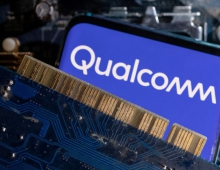
European Commission Closes Formal Proceedings Against Qualcomm
The European Commission has decided to close formal antitrust proceedings against Qualcomm Incorporated, a US chipset manufacturer, concerning an alleged breach of EC Treaty rules on abuse of a dominant market position.
The investigation was opened on 1 st October 2007.
The Qualcomm case has raised important issues about the pricing of technology after its adoption as part of an industry standard. In practice, such assessments may be very complex, and any antitrust enforcer has to be careful about overturning commercial agreements.
The Commission has investigated whether the royalties that Qualcomm has been charging since its patented technology became part of Europe's 3G standard are unreasonably high.
The Commission said companies that objected to Qualcomm's pricing for its technology have all withdrawn their complaints or are planning to withdraw them.
"The commission committed time and resources to this investigation in order to assess a complex body of evidence, but has not as yet reached formal conclusions," the regulator said in a statement. It added that without complaints about Qualcomm's pricing practices, it wouldn't be "appropriate to invest further resources in this case."
In 2005, Broadcom Corp., Telefon AB L.M. Ericsson (ERIC), NEC Corp. , Nokia Corp., Panasonic Mobile Communications Co. and Texas Instruments Inc.--told that commission that Qualcomm's royalty fees for licensing patents were excessive and that its tactics have kept other companies from entering the market for chips used in mobile phones.
Qualcomm, based in San Diego, makes chips for cell phones and charges royalties to handset makers and chip makers that use technology covered by its patents.
Earlier Tuesday Ericsson said it had withdrawn a complaint made to the commission about Qualcomm's licensing fees. This follows other settlements between Qualcomm and the companies that helped make the commission's original case, which became a formal antitrust probe in October 2007.
Nokia last year settled its dispute with Qualcomm, agreeing to make more than $2.5 billion in upfront payments for the use of Qualcomm's technology. Qualcomm in April agreed to pay Broadcom $891 million over four years to end years of litigation between them. As part of that deal, the companies agreed to exchange rights to each others' patents and Broadcom pledged to drop its antitrust complaints against Qualcomm in the EU and in South Korea.
NEC Corporation also announced today that NEC withdrew its complaint to the European Commission relating to Qualcomm's W-CDMA licensing practices.
In Japan, the Japan Fair Trade Commission already issued a Cease and Desist Order against Qualcomm on September 28, 2009 with respect to Qualcomm's licensing practices. Therefore, NEC has decided not to pursue the European case and withdraw the complaint to the European Commission.
The Qualcomm case has raised important issues about the pricing of technology after its adoption as part of an industry standard. In practice, such assessments may be very complex, and any antitrust enforcer has to be careful about overturning commercial agreements.
The Commission has investigated whether the royalties that Qualcomm has been charging since its patented technology became part of Europe's 3G standard are unreasonably high.
The Commission said companies that objected to Qualcomm's pricing for its technology have all withdrawn their complaints or are planning to withdraw them.
"The commission committed time and resources to this investigation in order to assess a complex body of evidence, but has not as yet reached formal conclusions," the regulator said in a statement. It added that without complaints about Qualcomm's pricing practices, it wouldn't be "appropriate to invest further resources in this case."
In 2005, Broadcom Corp., Telefon AB L.M. Ericsson (ERIC), NEC Corp. , Nokia Corp., Panasonic Mobile Communications Co. and Texas Instruments Inc.--told that commission that Qualcomm's royalty fees for licensing patents were excessive and that its tactics have kept other companies from entering the market for chips used in mobile phones.
Qualcomm, based in San Diego, makes chips for cell phones and charges royalties to handset makers and chip makers that use technology covered by its patents.
Earlier Tuesday Ericsson said it had withdrawn a complaint made to the commission about Qualcomm's licensing fees. This follows other settlements between Qualcomm and the companies that helped make the commission's original case, which became a formal antitrust probe in October 2007.
Nokia last year settled its dispute with Qualcomm, agreeing to make more than $2.5 billion in upfront payments for the use of Qualcomm's technology. Qualcomm in April agreed to pay Broadcom $891 million over four years to end years of litigation between them. As part of that deal, the companies agreed to exchange rights to each others' patents and Broadcom pledged to drop its antitrust complaints against Qualcomm in the EU and in South Korea.
NEC Corporation also announced today that NEC withdrew its complaint to the European Commission relating to Qualcomm's W-CDMA licensing practices.
In Japan, the Japan Fair Trade Commission already issued a Cease and Desist Order against Qualcomm on September 28, 2009 with respect to Qualcomm's licensing practices. Therefore, NEC has decided not to pursue the European case and withdraw the complaint to the European Commission.





















